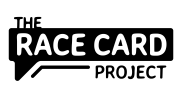K’Lee Rudd,
Fort Worth, TX
I’m mainly doing this for a sociology assignment…it made me think about how I was mistreated as a minority in my hometown. I’m defining a minority as a group of people that are distinguished from a population based on characteristics. And for my personal example, I will be using my hometown as the set population, not my county or state. My school district was 68% Hispanic, 12% Black, 15% White, and 5% Asian/Pacific islander, etc. This is how my school district categorized my graduating class. I didn’t think anything of my primary and secondary education when it comes to race initially because when you’re a child, things are just the way they are and you simply exist. I feel that the educational system conditions you in a way to experience racism. I didn’t even know what racism was until I experienced it in high school. I felt unwelcome and was bullied in sports because I was the only white female on the soccer team and the only white female on the basketball team. I vividly remember the coach telling my mother that although I was a “fantastic athlete,” she couldn’t put me on the varsity team because it “looks bad to put a white girl on varsity.” That never made sense to me.
My teammates told me that “basketball is a black people sport” and that I was “whitening it up” with be being present. I thought sports were about being competitive and winning? When did the color of my skin become a barrier to that? I hated that my athletic ability meant nothing to the coaches because I looked a certain way. I thought maybe that was just for sports, but then it happened for academics too. When I started applying for scholarships for college, I noticed I wasn’t allowed to apply for certain ones because they had a diversity requirement that I did not fulfill based on my race (white). I thought academics were about succeeding based on merit? I’ve seen a lot of arguments about how white people are privileged and get a better education, but that was not true in my case. I struggled like everyone else, and on top of that, I have a disability. Several disabilities. Both academically and medically. Why is it deemed fair to barr me from opportunities because of my skin color? I just feel as though I’m trying my best and time and time again, the educational system fails me. In addition to childhood racism and educational racism, I am now experiencing it as an adult in the workplace. Our society is well-developed enough to understand that racism and discrimination are not fair, yet it continues to happen. For example, when I got out of high school, I shortly went to college, decided it wasn’t for me, and applied to a barber school. I didn’t provide any distinguishing characteristics about myself on the application, such as gender, race, age, etc. I got a call to come to the school and finalize my paperwork and payment plans to get started and upon arrival, everyone’s heads turned and it felt that all eyes were on me. It got quiet and I felt incredibly uncomfortable. I thought it was because I was new or that I didn’t really look like I knew where I was going (I didn’t, that was the first time I had been there). I got to the office and the instructor asked me what I was doing there. I told him my name and about the phone call with my application. He rushed through my paperwork, didn’t allow me to ask questions, and immediately demanded my first tuition payment. He said that he didn’t know that I was white, like that meant something for the purpose of the application? I really think he wouldn’t have admitted me if he knew I was white prior.
I started school a few weeks later and I saw the same faces that looked at me when I walked in the last time. One of my new fellow classmates asked me, “How can I help you?” I laughed and said “What do you mean? I’m here to get licensed.” This man laughs in my face and says “Oh, honey. This is a black barber school! The white one is on Texas Avenue!” I was STUNNED by that statement because I was generally confused. The instructor then informed me that not only was I the first female student at that school, but I was also the first white one as well. I still, to this day, do not understand why that was such a big deal. Maybe it’s a culture thing? Hair is just hair. Everyone’s hair grows, we all need it cut. That’s what I saw. The entire time I attended barber school, the instructor and students consistently made fun of my hair and how different it was. There was a time when a new client walked in and my classmate yelled to the back where I was and said “K’Lee, someone’s here for you!” I thought it was a friend. This was a complete stranger. I talked to the man and asked what I could do for him. He said he was there to see Chris! He had heard good things about him and wanted a haircut from him. The man was unfortunately declined services because Chris simply did not know how to cut that type of hair texture. I offered to cut his hair, he sat in my chair and I got to work. I noticed that the instructor suddenly decided to change the music to country. I actually chuckled out loud because the man in my chair then asked to have the rap music turned back on. The instructor said that he thought white folks liked country music, that’s why he changed it. After the haircut was over and he left, I informed my classmate, who yelled at me that “someone was there for me,” that the man that just left my chair was a complete stranger to me. My classmate then said that he assumed he was there for me because I’m the only white person cutting hair, so he automatically thought that because he was white, he must’ve been there to see me. That, people, is racism at its finest. I then learned how to cut all hair types and got several compliments on my ability from clients. I’ll never forget how an elderly black man told me “I ain’t never seen a white girl cut hair better than a black man!” What a weird experience that all was.
To this day, the barbering culture is still very segregated and that blows my mind.




